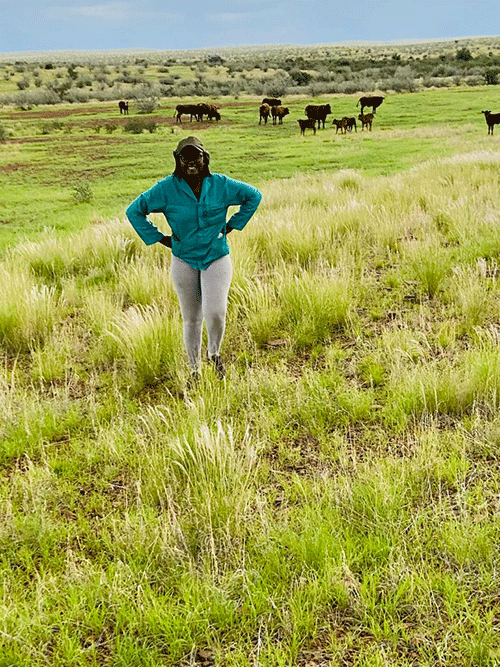In 2007, Elize Eliphas took a bold decision; to get dirty and muddy as opposed to following a career path that would land her a posh office job where her nails would be intact.
A fresh high school graduate at the time, it was not fashionable for a young woman to aspire to be confined to blue overalls and high ankle-boots. But for Eliphas, it was a foregone conclusion that she would one day actively pursue her passion of being a farmer by enrolling for agriculture related courses.
In her mind, she was preparing to manage a farm she was convinced she will own one day; a tall order at the time as she owned no land or livestock to set the dream off.
Armed with a degree in agriculture some few years later and in pursuit of her dream, Eliphas took up a job working on the commercial farm of prominent farmer Peter Kawana as a general farm worker. She stayed on the farm for eight months, all in the name of gaining practical experience of running a farm.
That was in 2011. Today, Eliphas is living her dream. She finally managed to have her own piece of land, which she acquired through the resettlement scheme. She has been farming on it since 2015.
She farms on Foskrun farm Voigtsgrund, located in the Maltahohe district of the Hardap region – some 70 kilometres south of Mariental.
Here, Eliphas practises integrated farming, which she said has helped to keep her afloat in difficult times of drought, weak market prices and overall economic downturns of some of the products she farms with.
A lover of the hardy Bonsmara cattle, Eliphas farms with the breed commercially in addition to Boergoat and Dorper sheep – all livestock breeds that have proven to do well in the sometimes unforgiving climate of southern Namibia.
She has also branched out to poultry farming and currently owns a substantial number of chickens that she keeps. Some are used as layers while others cater for the ever-demanding broilers market.
Eliphas practices both rainfed crop production and irrigation-based horticulture, which has her planting a range of crops under shade on a 1 000 square metre. Here she grows spinach and tomato, among others, while she has maize planted on the open area for rainfed production.
She traces her interest in farming to her humble upbringing in northern Namibia, where her family practiced subsistence farming on communal land.
“It gave me a sense of satisfaction knowing that the money we were given by our parents came from their farming activities. That was when that interest in farming started to grow, as I was sure this was the right career because it feeds you,” she recalled.
Challenges
The 2019 drought forced Elipahs to massively downsize on her livestock herd, reducing her cattle count from 72 to only 20. Not only was she forced to reduce the herd, but she also had to give away the cattle at prices far below the market average.
“I was a novice farmer and really excited by how far I had come, but 2019 taught me a lesson. Most of my heifers, which would normally sell for around N$10 000 had to go for N$4 000 each. It was painful, but out of my hands,” said Eliphas.
Not having extensive knowledge on some farming techniques also cost Eliphas dearly in 2020, shortly after venturing into broilers.
She bought 100 day-old chicks, which she raised to mature age for slaughter (around 45 days) without a single death.
It was, however, going to be the storing all 100 chickens after slaughter that would be price challenging, resulting in the loss of the entire stock of 100 broilers, which got spoilt.
The loss also meant that all the feed, water and care that went into raising the broilers to ripe age were lost in the process and never to be recovered.
“If any of you intend to go into the chicken broilers business, make sure you have a cold storage facility at hand. The broilers need to be stored in a cold storage and frozen as soon as possible, else you will experience the loss that we encountered,” she said.
Refusing to give up, Eliphas upped the stakes and bought 400 chicks to be raised as broilers. This time, the undertaking was a success and remains as such to date. This is in addition to about 600 layers that are on the farm.
Looking ahead
Eliphas, who is confident that her experience in farming has made her a stronger person, urged others to start small and work their way up the farming ladder. She noted that agribusiness such as poultry farming does not require a large piece of land; all it needs is the conviction to succeed. “Let us start with what we have and let us support local products so that others can grow. I always buy local, knowing I am keeping fellow Namibians in their jobs and providing a living for those who depend on them,” she said.



